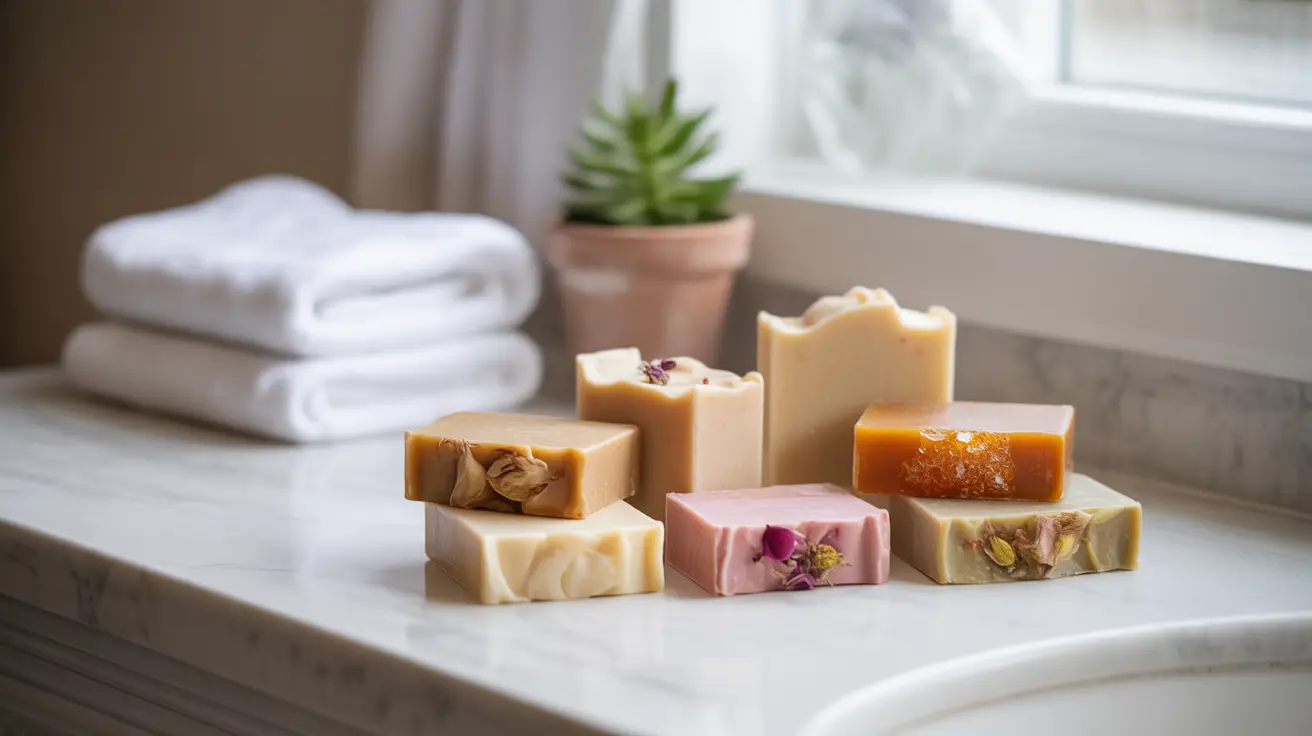Living with dry skin can be challenging, especially when it comes to choosing the right cleansing products. The soap you use plays a crucial role in maintaining your skin's moisture balance and overall health. This comprehensive guide will help you understand what to look for in soaps designed for dry skin and how to make the best choice for your specific needs.
Whether you're dealing with seasonal dryness, chronic dry skin conditions, or simply want to maintain healthy skin, selecting the right soap can make a significant difference in your skincare routine. Let's explore the essential factors to consider and the most effective ingredients for dry skin care.
Key Ingredients to Look for in Dry Skin Soaps
The most effective soaps for dry skin contain nourishing ingredients that help maintain the skin's natural moisture barrier while gently cleansing. Here are the essential components to seek out:
Natural Moisturizing Ingredients
- Glycerin: A powerful humectant that draws moisture to the skin
- Shea butter: Rich in fatty acids and vitamins that deeply nourish
- Hyaluronic acid: Helps skin retain moisture
- Ceramides: Support the skin's natural barrier function
- Natural oils: Such as jojoba, coconut, or almond oil for added hydration
Gentle Cleansing Agents
- Mild surfactants that clean without stripping
- Plant-based cleansers
- Syndet (synthetic detergent) formulations
- Soap-free cleansing bars
Understanding Different Types of Soaps for Dry Skin
Traditional Bar Soaps
Look for superfatted bar soaps specifically formulated for dry skin. These contain a higher percentage of moisturizing oils and are less likely to disturb your skin's natural pH balance.
Liquid Cleansers
Gentle liquid cleansers often provide excellent hydration and are particularly suitable for dry skin. They typically contain more moisturizing ingredients and are less likely to leave a residue.
Cleansing Oils
Oil-based cleansers can be especially beneficial for dry skin, as they clean while maintaining the skin's natural oils and moisture barrier.
Best Practices for Using Soap on Dry Skin
To maximize the benefits of your chosen soap and minimize potential irritation, follow these guidelines:
- Use lukewarm water instead of hot water
- Limit washing time to 5-10 minutes
- Pat skin dry gently instead of rubbing
- Apply moisturizer immediately after cleansing
- Consider using different products for face and body
Ingredients to Avoid
When selecting soap for dry skin, be wary of these potentially irritating ingredients:
- Artificial fragrances
- Alcohol-based ingredients
- Harsh sulfates (like SLS)
- Artificial dyes
- Parabens
- Antimicrobial agents
Frequently Asked Questions
- What ingredients should I look for in the best soap for dry skin?
Look for soaps containing glycerin, hyaluronic acid, ceramides, natural oils (like jojoba or coconut), shea butter, and mild surfactants. These ingredients help maintain moisture while gently cleansing the skin.
- Which soaps are dermatologist-recommended for sensitive or eczema-prone dry skin?
Dermatologists typically recommend fragrance-free, hypoallergenic soaps with minimal ingredients. Look for products specifically labeled for sensitive skin or eczema, containing ceramides and gentle cleansing agents.
- How do moisturizing soaps like glycerin and shea butter help improve dry skin?
Glycerin acts as a humectant, drawing moisture from the air into your skin, while shea butter provides rich emollient properties that soften and protect the skin barrier. Together, they help maintain hydration and prevent moisture loss.
- Can I use the same soap on my face and body if I have dry skin?
While possible, it's generally recommended to use separate products for face and body. Facial skin is more delicate and may require gentler, specifically formulated cleansers to maintain proper moisture balance.
- What ingredients or soap types should I avoid if I have dry, irritated skin?
Avoid soaps containing artificial fragrances, harsh sulfates (especially SLS), alcohol, artificial dyes, and strong antimicrobial agents. These ingredients can strip natural oils and further irritate dry skin.




